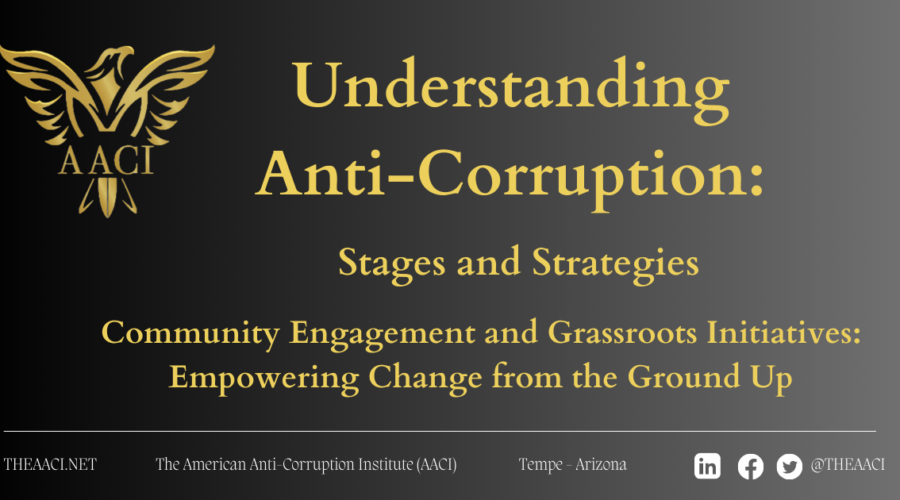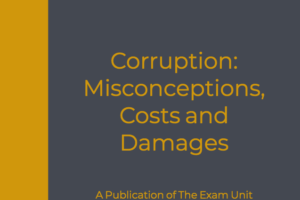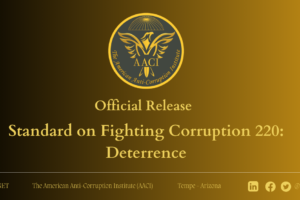December 10, 2023
Introduction
Corruption is a complex socioeconomic and political phenomenon against which nations and institutions must fight effectively and efficiently. Without properly combating corruption, countries and organizations will fail to achieve sustainable economic growth, good governance, and strong performance. However, a comprehensive understanding of corruption is a prerequisite for methodically and rigorously combating it.
What does “comprehensive understanding” mean in the context of fighting corruption? It signifies awareness, fundamental understanding, and advanced understanding regarding corruption. This is part two of a three-part article that aims to define the components of comprehensive understanding and provide strategies for each stage.
Awareness
Fighting corruption requires a bottom-up approach that involves communities at their core to raise awareness and drive change. This strategy entails organizing workshops, seminars, and community meetings aimed specifically at addressing and examining the local implications of corruption.
Purpose
The main goal of these initiatives is to empower individuals and local leaders. These events serve as platforms for dialogue, education, and empowerment by shedding light on the damage of corruption in their local context.
Goals
A. Raising Awareness: The purpose of these forums is to educate community members about the various forms and effects of corruption in their immediate environment. Real-life examples and case studies are used to demonstrate how corruption affects people’s daily lives, businesses, and the community’s overall well-being.
B. Discussion Facilitation: Open dialogue encourages active participation by allowing members of the community to express their concerns, share their experiences, and identify instances of corruption in their community. This interactive exchange aids comprehension of the localized dynamics and specific challenges associated with corruption.
C. Building Capabilities: Relevant knowledge and proper resources provide empowerment. Workshops, seminars, and anti-corruption certification programs teach people how to recognize, report, and resist corrupt practices in their spheres of influence. Training on whistleblowing procedures, internal control, governance, financial statement fraud, money laundering, understanding legal frameworks, and promoting ethical decision-making could all be part of this.

D. Encourage Action: These initiatives aim to elicit action in addition to raising awareness. Individuals and leaders who are empowered to take a stand against corruption are encouraged to do so, whether by reporting instances of malpractice, advocating for transparency and accountability in local governance, or actively participating in anti-corruption initiatives.
Impact
Getting people involved at the grassroots level can have a significant impact. These empowered community members become change agents in their communities. They not only oppose corrupt practices but also foster a culture of accountability and integrity, resulting in a far-reaching ripple effect far beyond these initial initiatives.
Conclusion
Community engagement and grass-roots initiatives are fundamental pillars in the fight against corruption because they recognize the power of communities to drive meaningful change. These initiatives lay the groundwork for a more transparent and ethical society by providing individuals with adequate knowledge, proper resources, anti-corruption certification programs, and a sense of responsibility.
This proactive approach, which involves communities at the grassroots level, not only raises awareness but also sparks a collective commitment to combat corruption from the ground up.











































